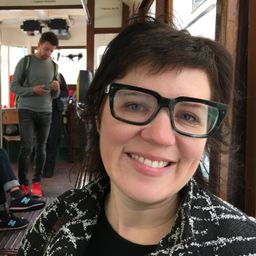Raising consciousness, finding feminism in the preservation of Milton Park, Montreal
Mon statut pour la session
In the spring of 1970, Clara Gutsche and David Miller, two aspiring young photographers found in the threatened buildings and streets of their inner-city Montreal neighbourhood inspiration for their first photo-documentary project: “You don’t know what you’ve got ‘till it’s gone”: the Destruction of Milton Park. While Miller photographed the buildings from the exterior, tracking their deterioration from well-maintained structures, to empty shells, to vacant lots of upturned earth, Gutsche brought viewers inside portraying inhabitants in the intimacy of their kitchens, salons and bedrooms, surrounded by the objects and order of their everyday lives. They circulated these images of a vulnerable yet cohesive community among residents, exhibiting them first locally, then nationally and internationally to raise awareness about what was going on in the neighbourhood and what could be done about it.
In this paper, I use Milton Park as a case study to explore the netted relations that can arise between different heritage groups when brought together through specific acts of preservation. I question what happens when overlapping groups understand their heritage in different ways, specifically when the heritage of one group folds neatly into established narratives and another does not.
Milton Park is today recognized as a model of historic preservation. Gutsche and Miller’s photographs are often called upon to evoke the collective effort of local residents who fought against a private development company to save their neighbourhood from wholesale demolition. This narrative is validated by the eventual renovation of the remaining structures and the creation of a network of cooperative and non-profit associations to ensure their continued use and maintenance.
In this paper I pursue an alternate reading of the Milton Park photographs, using gender as a lens to reveal the little studied relationship between early feminist and heritage practices in Montreal. Described by the photographers as a “consciousness-raising exercise,” I argue that second wave feminism was a driving force behind the conception and execution of the project. Heritage activism in Milton Park took cues from the emerging women’s movement that grew through spaces such as the Women’s Centre and the University Settlement, and was strengthened by those in the neighbourhood who saw affinities between these causes. While Gutsche’s photographs of interior spaces and their inhabitants seem an anomaly when compared to traditional building surveys, they capture many otherwise invisible ways that women participated in the construction and preservation of space in Milton Park, and articulate a key argument made by second-wave feminists: that “the personal is political.” Through a close reading of the photographs, interviews with the photographers, the women portrayed in the photographs and others who lived in the neighbourhood, I explore how contributions of feminist groups, whose legacy is typically understood as ideology-driven and based in notions of change rather than permanence, are subsumed and overlooked or erased by more established heritage narratives and structures.
